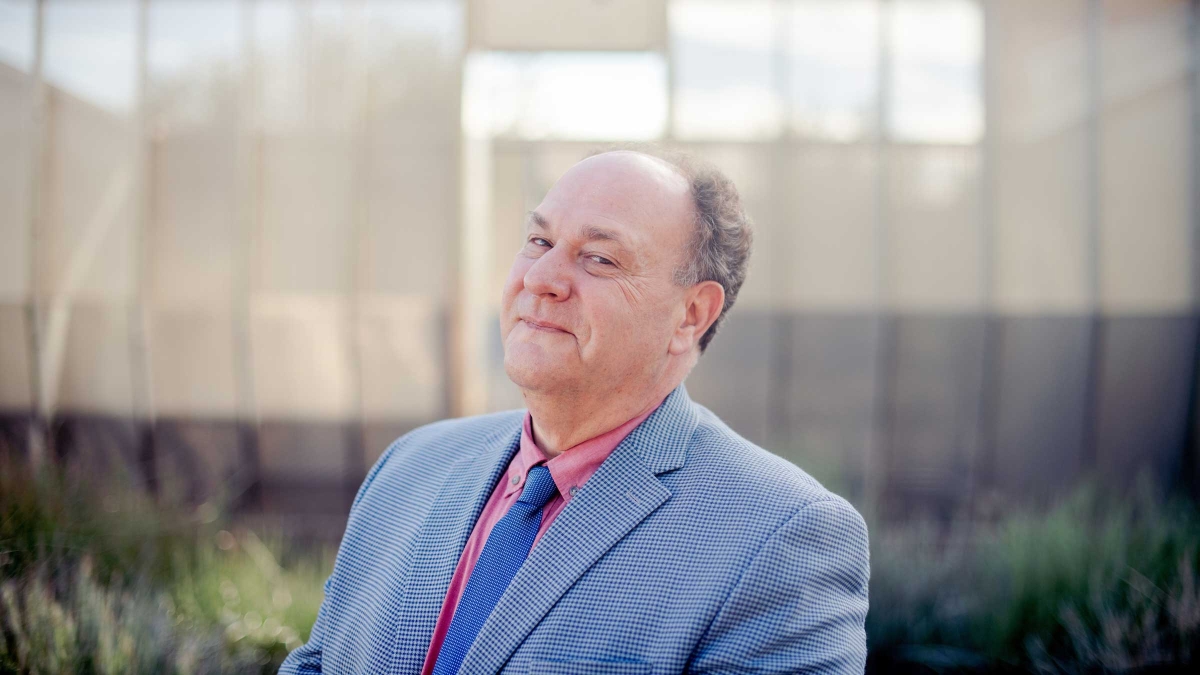Ferran Garcia-Pichel wasn’t sure he wanted to be a scientist.
“I wasn't one of these people, like I know some of my colleagues, they knew since they were 3 that they were going to study ants or something,” he said. “That was not my case. I think I was pretty old and I was still doubting. I was like, 'Should I do biology, or maybe philosophy?' It was not clear to me. So yeah, no, I was a late bloomer in that regard.”
Late or not, the Arizona State University biogeochemist has certainly arrived now. He has been awarded the university’s highest faculty honor: the designation of Regents Professor.
Regents Professors are the elite of the academic world. To be awarded the distinction, scholars must be full professors with outstanding achievements in their fields, who are nationally and internationally recognized by their peers.
No more than 3% of all faculty at ASU carry the distinction.
“I think I started doing things and I liked them,” he said. “I have no regrets whatsoever into the choices I made. I had led a happy life with my professional life all the time, and I still do. It's brought a lot of joy in many respects, particularly mentoring other people and trying to get them into science.”
Garcia-Pichel is the Virginia M. Ullman Professor of the Environment in the School of Life Sciences and the founding director of the Center for Fundamental and Applied Microbiomics at the Biodesign Institute.
He has also held an affiliated scientist position at the Lawrence Berkeley National Laboratory since 2011.
Garcia-Pichel's extraordinary discoveries on the roles that microbes play in the environment are pioneering and transdisciplinary. His research has enabled convergence of different disciplines, combining approaches from biogeochemistry, geomicrobiology and global change biology, and opened up new frontiers of research.
His research provides much of the most important knowledge of microbial ecology including the ecological and genetic diversity of cyanobacteria, perhaps the most essential bacteria on the planet. His discoveries are shaping our understanding of the deep history of Earth from deserts to oceans. Ecological research is only beginning to come to grips with some of his newest discoveries.
The Arizona Board of Regents cited a reference explaining the extraordinary impact of his discoveries: “To him we owe the (1) discovery and identification of many cyanobacterial sunscreens that allow survival in environments of high insolation and stress ... (2) the newly developing field of biological soil crust science, introducing microbiological sciences to this field of study ... (3) the potential roles of microbes which cemented the central role played by photosynthetic microorganisms in the ecology of arid lands. … (4) a translation (of his findings) into conservation, daringly delving into geotechnics. These efforts, important locally in Arizona, recently earned him a recognition from the Arizona governor.”
Another reference offered by the board attested to the pioneering aspect of his research: “In summary, Ferran Garcia-Pichel is a brilliant and creative biogeoscientist with broad interests who, through his scientific discoveries and great talent for investigating interesting environments, has opened up three completely different fields of science.”
The breadth of his research is expressed by the diversity of his funding sources, which range from the NSF and the USDA to NASA and the Department of Defense. Garcia-Pichel has published more than 170 articles with citations totaling over 14,000.
All of this research was carried out during his service as dean of natural sciences, a testament to his commitment to ASU.
To be recognized by his institution carries a special validation.
“I dedicated all my life to the university. … It just means a lot, I think, to me. … It's a recognition coming from my school. That's what's extra value, right?”
Garcia-Pichel is no stranger to the winners podium. He is also a recipient of the Bold Award from the Phycological Society of America, a Fulbright Scholar, a Distinguished Lecturer at the American Society for Microbiology, a Neil Welker Award Lecturer in Prokaryotic Biology, a Henry W. Menn Memorial Award winner, an elected fellow of the American Academy of Microbiology, and an honorary member of the National Collegiate Hispanic Honor Society. Most recently, he received the David C. White Award from the American Society for Microbiology recognizing his dedication to his students and to his science.
In announcing the distinction, the board stated, “Professor Garcia-Pichel’s pioneering research has explored issues from the origins of life to the functioning of ecosystems under future global change exemplified by his international awards in microbiological sciences, phycology and microbial ecology. His devotion to research, teaching and academic leadership epitomize what the title of Regents Professor conveys.”
Garcia-Pichel responded with humility.
“I just see all the list of very famous professors that are a part of the select club and I thought, ‘Hmm, I'm not sure I belong there,’” he said. “It sounds a little cheesy, but it's true. I am very honored to have received that.”
Top photo: Center for Applied and Fundamental Microbiomics Director Ferran Garcia-Pichel poses for a photo outside the James Turrell "Air Apparent" sculpture on the ASU Tempe campus on Jan. 20, 2021. Photo by Jarod Opperman/ASU
More Science and technology

Applied Materials invests in ASU to advance technology for a brighter future
For nearly 60 years, global giant Applied Materials has been hard at work engineering technology that continues to change how microchips are made.Their products power everything from flat-panel…

Meet ASU engineering students who are improving health care, computing and more
Furthering knowledge of water resource management, increasing the efficiency of manufacturing point-of-care health diagnostic tools and exploring new uses for emerging computer memory are just some…

Turning up the light: Plants, semiconductors and fuel production
What can plants and semiconductors teach us about fuel production?ASU's Gary Moore hopes to find out.With the aim of learning how to create viable alternatives to fossil-based fuels, Moore — an…


